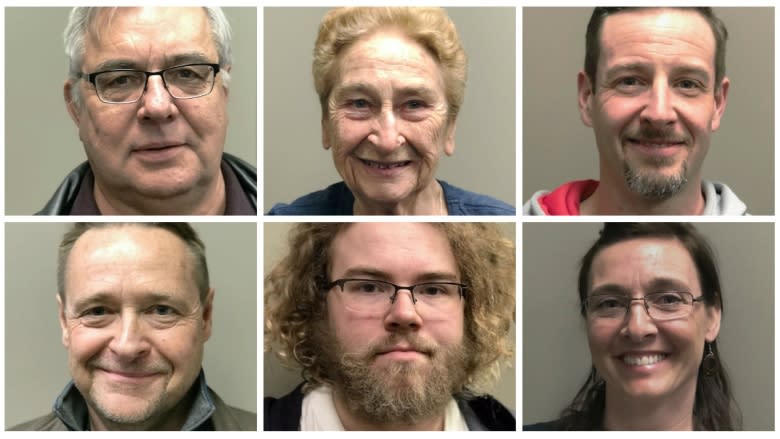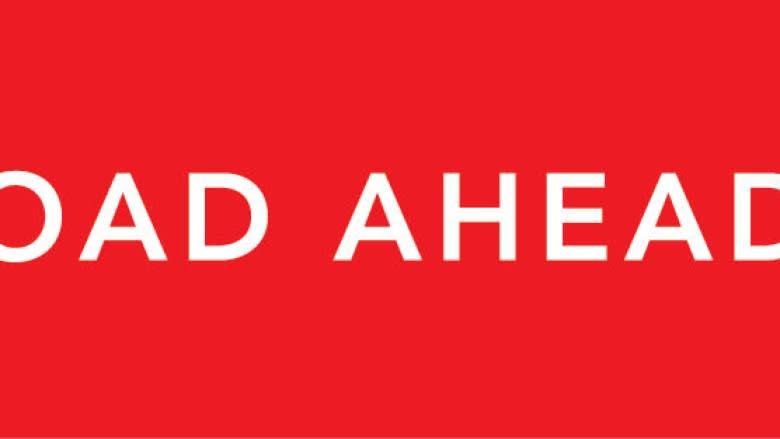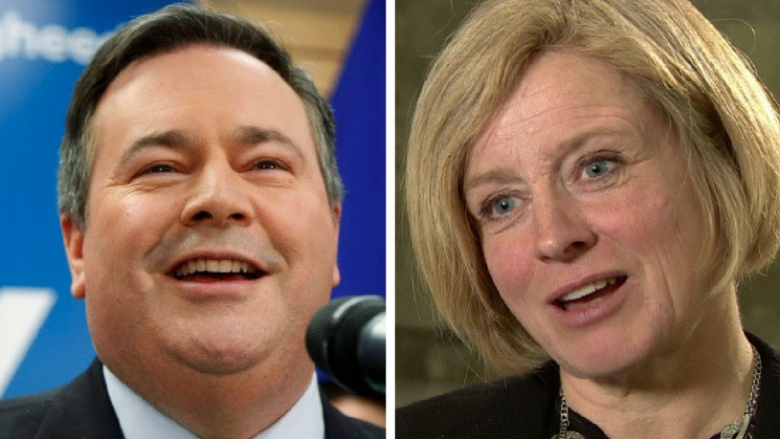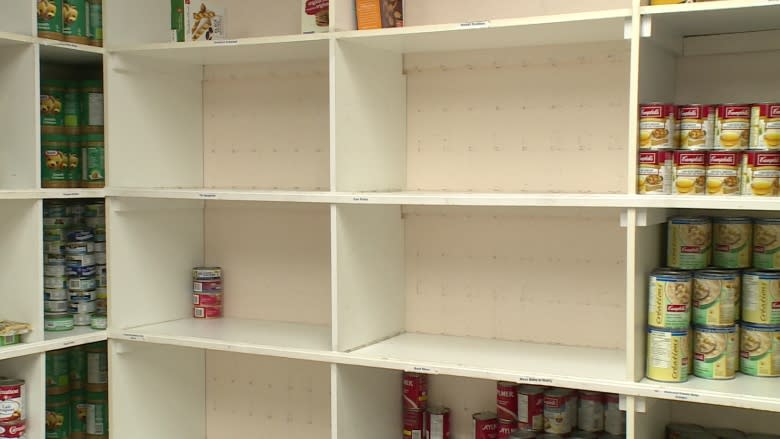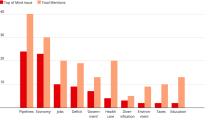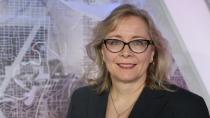Nearly half of Albertans have trouble paying their bills. Only one-quarter think NDP can get a pipeline built
This story was originally published April 25, 2018.
We asked. Albertans answered. They were loud and clear.
Forty-seven per cent of people in Alberta think pipelines or the economy are the most important issues facing the province. Other issues, like education and health care, don't even come close.
A surprising number of people also say they're struggling to pay their bills. Despite the end of the recent recession and economic indicators pointing to a rebound, many Albertans remain nervous about their financial futures.
All this comes from a wide-ranging telephone and online survey of 1,200 people commissioned by CBC News. That was followed by a series of focus groups involving dozens of people to hear, in detail, how Albertans feel — and why.
With a provincial election just over a year away, we asked people about more than a dozen issues — how they feel about the economy, about politics, about their values and their lives. Over the next week or so, we'll be sharing the numbers and the stories behind them.
We start with problems over pipelines, politics and personal finance.
Pipeline problems
The controversy over expanding Kinder Morgan's Trans Mountain pipeline has dominated the news in recent months. And it seems pipelines have become a focal point for many Albertans' continuing concerns about the economy.
Many people in the province believe the "future of the economy depends on the ability to build pipelines," said pollster Janet Brown, who conducted the survey for CBC News.
"That's not to say Albertans no longer care about health and education," Brown said. "It's just the economy has eclipsed those things. And people feel like we can't fix those things if our economy is broken."
While economists and politicians say Alberta is bouncing back from a recession, polling data compiled for CBC News shows Albertans remain skeptical.
Forty-five per cent of Albertans think the economy is recovering. But 18 per cent think the province's economic situation is getting worse and about 35 per cent believe the situation is staying the same.
Stephen Carlton, a 55-year-old energy-industry worker from Calgary, said he's frustrated by the steps the British Columbia government and other opponents have taken to block the construction of pipelines from Alberta to tidewater.
Carlton says it's a top issue for Albertans because other economic benefits would flow from a new pipeline.
"And if we can sort that out, it opens up a whole range of opportunities," he said.
"We appreciate great health care, we appreciate education … but this is our province's income that is being limited and being hamstrung by the pipeline issue."
He's far from alone in that view.
"I think pipelines are the issue of the day because it's controversial right now," said Kelly Kernick, a 44-year-old Calgary realtor.
And, with the next provincial election only a year away, the majority of Albertans polled are not confident in the governing NDP to handle this top-of-mind issue.
The politics of pipelines
Despite Premier Rachel Notley's tough talk in recent months and the praise she's garnered from some in the energy industry, only 26 per cent of Albertans think the NDP can best get a pipeline built.
Rather, 50 per cent of Albertans think the United Conservative Party (UCP), led by former federal cabinet minister Jason Kenney, is better suited to the task.
About 17 per cent said they didn't know which political party would be better, while the Alberta Party polled at four per cent and the Alberta Liberal Party at three per cent.
Angela Burford gave Notley high marks for effort, but thinks most Albertans are stingy with praise for her because the pipeline is not a done deal. The 41-year-old from Airdrie, Alta., said "people aren't happy" as long as the Trans Mountain pipeline's future is uncertain.
Retired energy sector manager Don Rausch offered his own critique of Notley.
"It's all been talk and there hasn't been any action," the 66-year-old Calgarian said. "Why should she get any credit?"
But fellow participant Fred Krause believes perception may be the problem.
"Maybe ... we just don't give her the credit for being the bulldog," said the 37-year-old technical manager. "I think a lot of people have a notion of what the NDP stand for — their politics — and that plays into it."
Meanwhile, the broader polling data pointed to one possible reason many Albertans feel how they do about pipelines and politics — they're struggling to pay their bills.
Pocketbooks, politics & perception
Forty-two per cent of respondents said they're finding it difficult or somewhat difficult to cover their monthly expenses.
"These are startling numbers for Alberta," said Brown, the pollster. "To see such a large proportion of the population struggling right now, it's very odd for the average Albertan."
Twenty-nine per cent of respondents think their finances will get better in the next year, 48 per cent expect their household's situation to remain the same — and 22 per cent think it will get worse.
The government likes to talk up the numerous indicators pointing toward better economic times.
But the poll results show there's a gap between what the NDP is saying and what many Albertans think and feel.
"The government is coming off as tone deaf," Brown said.
Twenty-two-year-old lifeguard Tristan Arsenault believes an improving economy may actually prompt Albertans to support a conservative party.
"With our economy now increasing," he said, there is "a better chance for hope … that we can look to somebody else to finish the job."
It's the economy
Data scientist John Santos, who works with Brown, said the NDP appears to be fighting "an uphill battle" for re-election.
Fifty-three per cent of Albertans, according to the poll, believe the UCP is best able to defend the province's economic interests. Only 23 per cent think the governing NDP would do a better job.
The New Democrats don't own the pipeline issue, Santos said. The party "could do everything right, they could have a miracle, have the economy recover, and people still wouldn't attribute it to them."
Tamara Keller, 43, thinks Notley gets a "raw deal," with too much blame for the recession.
"The price of oil went in the tank and the government had no control over that — the people weren't able to really to separate out these different issues," she said. "And so we get to point the finger at somebody else, and she is really convenient for that."
Still, given all the polling data, Brown thinks Notley needs to tone down her talk about an economic recovery.
"I think she'd be far better off acknowledging the pain that people are feeling," Brown said.
Estelle Mathews, an 84-year old focus-group participant from Calgary, said Alberta's economy will play a big role in how she votes next year.
"I'm willing to listen. I'm not stuck on being conservative or NDP or anything," she said. "I'm prepared to move according to what's going on in the province."
The random survey of 1,200 Albertans was conducted using a hybrid method between March 13 to April 5, 2018 by Trend Research under the direction of Janet Brown Opinion Research. The sample is representative along regional, age, and gender factors. The margin of error is +/-2.8 percentage points, 19 times out of 20, and larger for subsets.
The survey used a hybrid methodology that involved contacting survey respondents by telephone and giving them the option of completing the survey at that time or later, or completing it online. The response rate among valid numbers (i.e., residential and personal) was 20.8 per cent.
Calgary: The Road Ahead is CBC Calgary's special focus on our city as we build the city we want — the city we need. It's the place for possibilities, a marketplace of ideas. Have an idea? Email us at: calgarytheroadahead@cbc.ca

 Yahoo Finance
Yahoo Finance 